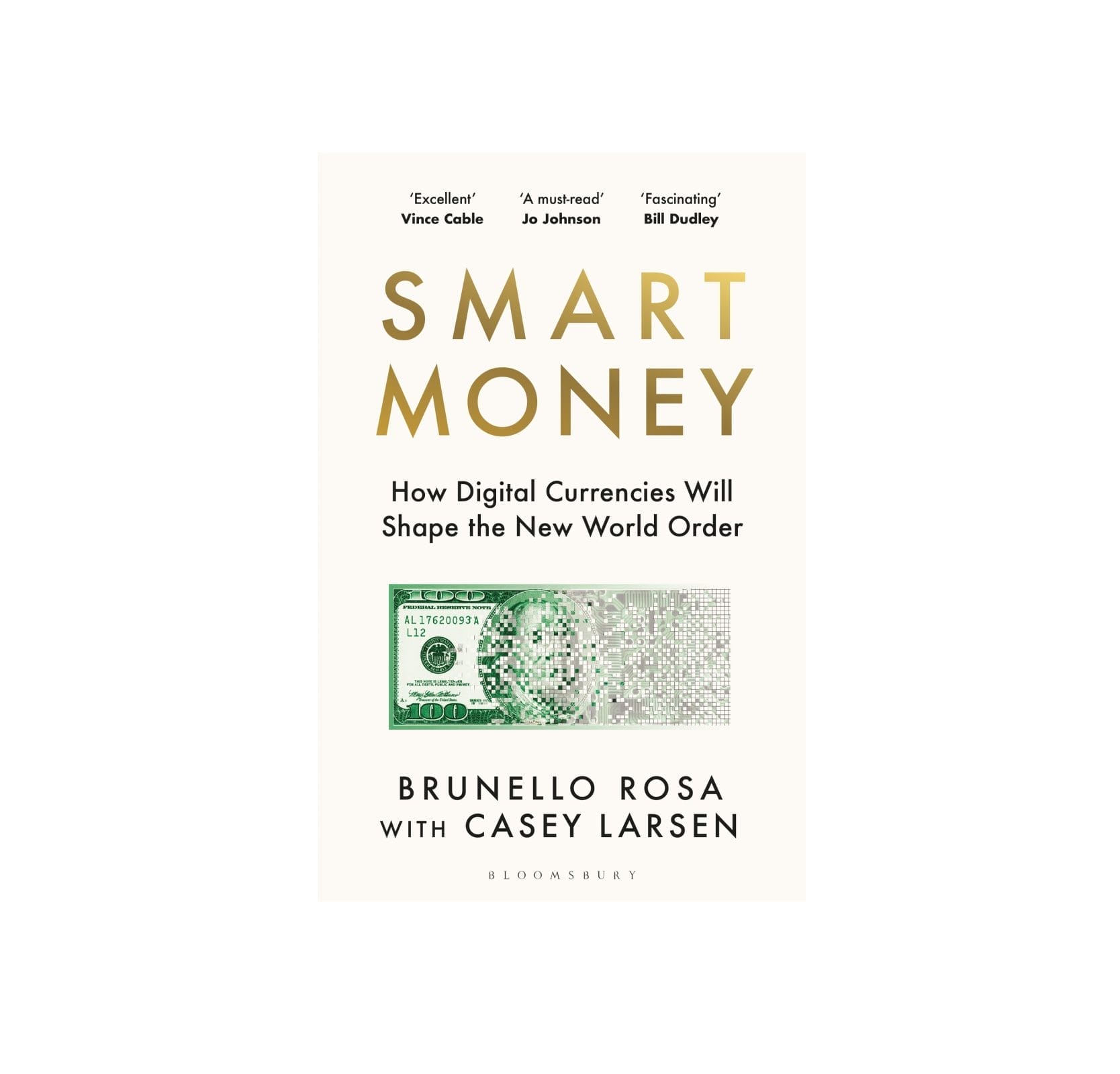Comprehensive answers to complex questions, tailored to specific audiences.

Rosa & Roubini Associates is a global macro advisory firm providing independent research and advisory services for business leaders and capital allocators.


“Urgent, clear-eyed and ground-breaking, ‘Smart Money’ shows us how all of our lives will soon be shaped by the ‘internet of money’ in ways most of us have failed even to consider.”
Bloomsbury
SMART MONEY

Digital Assets Advisory
We advise corporations and governments on the digital asset revolution, from navigating global regulations to leveraging digital assets on balance sheets, asset tokenization, and the geopolitical impact of state-backed digital currencies.
Advisory Services

OUR TEAM
Our independent consultants are located all over the world, and combine decades of experience and expertise across academia, policy making and the private sector.
Our Research
Weekly Column
US-Israel Strikes on Iran Decapitate the Regime: What’s Next?

The military operation. In the early hours of last Saturday, the United States and Israel launched a sweeping joint military offensive against Iran, fundamentally reshaping the geopolitical landscape of the Middle East overnight. The operation, codenamed Operation Epic Fury by the Pentagon and Roaring Lion by Israel, marked one of the most consequential military escalations in the region in decades. President Trump justified the operation as a response to Iran’s refusal to abandon its nuclear ambitions, despite the absence of supporting assessments from U.S. intelligence agencies that Iran was close to deploying missiles capable of reaching Europe or the American mainland.
The strikes began shortly after dawn, with massive explosions reported across Tehran, Isfahan, Qom, Karaj, and Kermanshah. Targets included nuclear facilities, ballistic missile infrastructure, and senior leadership figures. Among those killed was Supreme Leader Ayatollah Ali Khamenei, alongside Iran’s defence minister, the commander of the Islamic Revolutionary Guard Corps (IRGC), and the secretary of the Iranian Security Council. Iranian state media confirmed Khamenei’s death early Sunday morning at the age of 86, prompting the government to declare 40 days of national mourning.
Iran’s retaliation was immediate and far-reaching. The IRGC claimed responsibility for attacks targeting 27 U.S. military bases across the Middle East, as well as Israeli military facilities in Tel Aviv. Qatar, the United Arab Emirates, Bahrain, Kuwait, and Jordan, all hosts to American military installations, were also struck. The UAE temporarily shifted schools to remote learning, while more than 1,400 regional flights were cancelled in a single day, underscoring the rapid spillover into civilian life and regional stability.
Succession Plans. The 88-member Assembly of Experts is tasked with selecting the next Supreme Leader, but no clear successor has emerged. Potential candidates include Khamenei’s son Mojtaba, senior clerics Ali Larijani and Sadeq Larijani, senior Iranian cleric Ayatollah Alireza Arafi, and Hassan Khomeini, grandson of the Islamic Republic’s founder. Mojtaba Khamenei holds considerable influence through his ties to the IRGC, though hereditary succession sits uneasily within Shia clerical tradition. Meanwhile, Arafi is serving as the interim Supreme Leader. Some observers have revived discussion of Reza Pahlavi Jr. as a potential transitional figure capable of guiding Iran through political change. Yet the pathway to such an outcome remains unclear. Any transition would require broad domestic legitimacy, not merely external backing. Recent history suggests that decapitating leadership structures does not automatically produce democratic transition; in some cases, it strengthens entrenched power networks rather than dismantling them.
Four scenarios ahead. History offers sobering parallels. From Iraq and Libya to Syria and Afghanistan, the removal or weakening of regimes has repeatedly proven easier than building durable political orders in their aftermath. Political transformation rarely emerges from sustained conflict, institutional collapse, and social fragmentation. Iran has established a temporary leadership council, yet the country’s future remains deeply uncertain. Removing Khamenei does not necessarily mean regime change. The IRGC, not the clerical establishment alone, remains the central pillar of power.
Given this background, we foresee four scenarios ahead. 1) Escalation. In this unlikely scenario, Iran elects an even more extreme Supreme Leader, which escalates the conflict at regional level. 2) The Venezuela’s Playbook: in this scenario, the regime remains in place, but chooses as Supreme Leader somebody much more accommodating and willing to compromise with the Americans. This could be the last chance for the IR to survive, and cannot be ruled out a priori.
3) The Iraqi Chaos: The IR collapses together with its leadership and the nation needs to be rebuilt from the ground up. But without boots on the ground from the Americans, and trillions of dollars in financial support, the country becomes a chaotic set of rival factions and tribes aiming at gaining overall control of the country, without ever succeeding.
4) The Afghani solution: the regime collapses and a new pro-Western leader is chosen, such as Reza Pahlavi. But without the full support of the US, the military and the population, Pahlavi becomes a sort of “Mayor of Teheran” the same way Karzai was called the “Mayor of Kabul,” which remained in place until the Americans handed power back to the Talebans.
The economic implications are equally significant, particularly for global energy markets. Investors are bracing for a potential oil supply shock, with prices vulnerable to sharp swings between relief, should tensions ease, and sustained volatility if conflict persists. The Strait of Hormuz, through which roughly one-fifth of global oil supply passes, had already seen rising tensions in the weeks preceding the strikes. Any disruption would trigger an immediate global energy crisis.
Impact on global Geopolitics. Viewed alongside ongoing pressure on Venezuela’s energy sector, the operation may further constrain supplies of discounted oil to China. Beijing’s muted response so far raises broader strategic questions. As Washington demonstrates a willingness to intervene unilaterally to defend its interests abroad, China may increasingly argue that similar logic applies to Taiwan, which it considers a renegade province under its interpretation of the longstanding One China framework. The risk, therefore, is that a regional military escalation in the Middle East could accelerate strategic confrontations far beyond it.
Our Views
Our Podcasts














